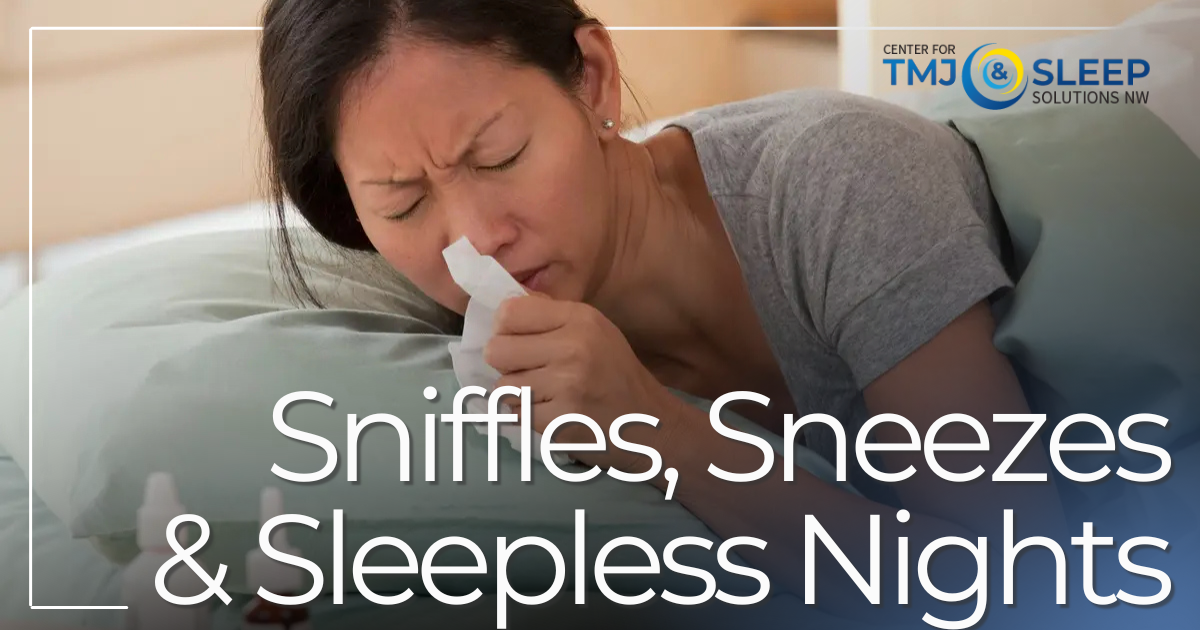
Sleep Apnea And Allergies: How One Impacts The Other
For many patients, managing sleep apnea is already a nightly challenge. When seasonal or environmental allergies enter the picture, breathing problems can become even more difficult. Allergies don’t just affect your nose during the day; they can also play a big role in how well you breathe and sleep at night. Keep reading to learn more.
The Allergy–Sleep Apnea Connection
Allergies cause inflammation in the nasal passages, leading to congestion, swelling, and increased mucus production. This narrows the airway, making it harder for air to flow freely. For people with sleep apnea, this obstruction can exacerbate snoring and increase the frequency of apnea episodes, and reduce the effectiveness of treatments like CPAP or oral appliances.
Common Symptoms Patients Notice
When allergies flare up, patients with sleep apnea often experience:
- Louder or more frequent snoring
- More frequent pauses in breathing at night
- Restless sleep with tossing, turning, or frequent waking
- Dry mouth from mouth breathing
- Increased daytime fatigue, headaches, and irritability
These symptoms don’t just affect your sleep; they can also take a toll on your overall health, energy levels, and daily focus.
How Allergies Interfere with Treatment
Consistent treatment is key to managing sleep apnea, but allergies can make patients less likely to stick with it. For example, CPAP users may find the added nasal congestion uncomfortable, leading to more dryness, irritation, or even skipped nights of therapy. Those using oral appliances may also struggle, as congestion forces more mouth breathing, reducing the airway’s stability.
What You Can Do to Find Relief
The good news is that there are ways to manage allergies and keep sleep apnea treatment on track:
- Stay consistent with therapy: Don’t skip CPAP or your oral appliance; adjustments can be made to improve comfort.
- Use a humidifier: Moist air soothes irritated nasal passages and reduces dryness.
- Keep filters clean: CPAP machines and home air systems should be cleaned regularly to minimize dust and allergens.
- Rinse nasal passages: Saline sprays or rinses can help clear allergens and mucus buildup.
Talk to your provider: Over-the-counter or prescription allergy treatments may be recommended to keep your airway open.
Breathe Easier & Sleep Better
Allergies may be temporary, but their effect on sleep apnea can be long-lasting if not addressed. By tackling allergy symptoms early and maintaining consistent treatment, you can improve your breathing, get more restful sleep, and protect your overall health.
At Center for TMJ & Sleep Apnea Solutions NW, we’re here to help you find solutions that work year-round. If allergies are making your sleep apnea worse, please contact your sleep doctor at one of our offices located in Silverdale, Federal Way, and Bellevue, WA.










